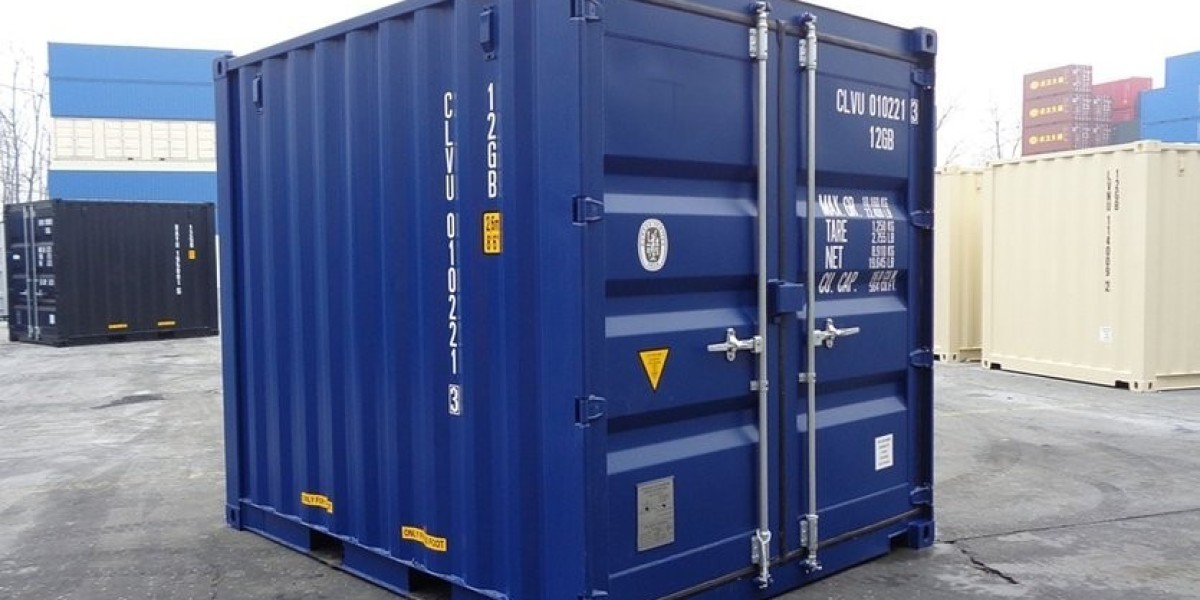Refrigerated Containers (also known as reefers) are used by a variety of industries to transport temperature-sensitive products over long distances. From catering companies delivering prepared meals to research labs transporting blood plasma, refrigerated containers can be customized with features like remote monitoring and backup power options.
Using a refrigerated shipping container will ensure that your goods arrive in perfect condition. Modern refrigeration units focus on energy efficiency and top-quality insulation.
Customization
Each decision you make with regard to refrigerated container safety and integrity plays a role. Your thoughtful choices will ensure that your goods remain at their top by making sure you select the right size variants for your different shipments and advanced features to improve the efficiency of your cold chain management.
For instance, choosing containers that are sized to the volume of your product reduces temperature fluctuations and increases energy efficiency. The type of insulation is equally important. Both vacuum and foam insulation panels are available, however the choice depends on your requirements. Foam is less expensive, however vacuum insulation panels offer superior thermal resistance.
In the field of reefer technology, using IoT capabilities that allow for continuous monitoring and status alerts will ensure that your shipment is well-protected throughout its journey. These digital advances also increase the efficiency of operations and transparency in supply chain.
If it's for live cargo or pharmaceuticals, a specialized refrigeration unit will be designed to meet your individual requirements and ensure the welfare of your products over long journeys. These containers can be equipped with redundancy systems to prevent any unexpected system malfunctions. They can also be fitted with advanced materials that comply with the high standards of the pharmaceutical industry or guarantee the safety and health of the transit environment for livestock.
Other innovations include airflow vents or fresh air ducts to control the interior atmosphere and ensure it stays steady. These piping systems eliminate gases such as ethylene, which accelerates the ripening of fruit and ensures an even distribution of temperature across the container. A built-in drainage system stops the buildup of water and insects infestation.
Energy Efficiency
Refrigerated Containers provide a secure and safe place to store temperature-sensitive cargo. They can be used to protect food items, pharmaceuticals, premium foods, and more. They are made of high-quality insulation and advanced controls to keep internal temperatures at a constant level. They also offer advanced security features that help keep your items safe from vandalism and theft. Some containers are designed to be eco friendly and use renewable sources of energy which makes them a viable option for businesses.
Refrigeration systems are essential to maintain the quality of cargo but they also consume a lot of energy. This is especially the case when there are multiple containers stored on the same vessel or at the terminal. This power-intensive use is offset by refrigerators that have automated temperature control systems. These systems monitor and adjust the container's temperature in accordance with the surrounding temperature and can result in substantial savings.
Modern refrigerated containers (reefers) focus on energy efficiency and utilize advanced cooling and insulation technologies to reduce the power consumption. They are often also equipped with diesel generators, which can be used in places without access to electrical power. This lets them continue to work in transit or when stationary power isn't available.
A significant proportion of the electricity consumption of refrigerated containers can be attributed by the exchange of heat between the container's interior and exterior through insulation that is resistant to cold. The percentage varies from 35 to 85% in the cooling mode and up to 50% in the heating mode (Filina and Filin 2004).
The following steps are suggested to reduce the energy consumption by refrigerated container. These include adjusting the layout of the terminal and electrical handling equipment use and searching for energy-saving operations of refrigerated containers with frozen or cooled cargo, and integration of cranes and trucks scheduling (Yang and Lin 2013). It is worth noting that the reduction of ( overset Bulletproof Q _1 ) component share will result in a proportional decrease of the total consumption of electricity. As part of their innovation and energy-saving strategies, small ports and container terminals are encouraged to adopt the proposed measures.
Security
Refrigerated containers come with advanced security features that protect your products from being tampered with. The container's sturdy construction is able to withstand temperature fluctuations and environmental damage. The door locks are designed to prevent unwanted unauthorized entry. The refrigeration systems are totally isolated from the rest of the container, which means that any alteration to the system or malfunctions will not affect the temperature. The units can also be fitted with temperature alarms that warn you of any problems in real-time.
Many industries rely on refrigerated containers to transport their products. From catering companies that ship prepared meals to research laboratories that transport sensitive samples, refrigerated containers provide reliable, temperature-controlled transportation. Refrigerated containers do not just preserve the quality of the product but also assist businesses reduce waste. In industries that deal with perishable items, spoilage and waste are significant issues. Spoilage not only causes financial loss, but can also affect the safety of consumers. Refrigerated containers equipped with the latest temperature control can ensure the integrity and shelf life of the products.
The premium insulation in refrigerated containers keep the interior at a stable temperature, allowing precise control of the internal environment. Modern reefer containers can even offer a variety of cooling options, ranging from chilled to sub-zero freezing. This allows you to tailor the temperature according to your personal needs and ensure that your products are in optimal condition.
Furthermore, the best refrigerated containers are equipped with advanced air circulation systems to ensure consistent temperature throughout the cargo area. They have fans that circulate cold air, even air to avoid hotspots from forming and also provide superior ventilation. The units are also fitted with humidity control, making sure that your cargo stays fresh and free from deterioration. Fruits and vegetables are particularly sensitive to humidity control because they continue to produce heat and ethylene long after harvest. In addition the ventilation system is designed to remove these gases from the container.
Refrigerated containers play a vital role in international trade. They enable businesses to connect with customers across the globe, without compromising on product quality. To meet your particular requirements you should look for units with precise temperature controls, remote monitors, and backup power options.
 Maintenance
MaintenanceRefrigerated Containers are a great way to transport temperature-sensitive cargo, but they require proper maintenance and cleaning to ensure optimal performance. Routine calibration, power maintenance, and insulation maintenance are the most effective ways to keep your the refrigerated container in top working condition.
Monitoring of Temperature
Refrigerated containers can be monitored remotely to ensure the temperature inside remains within a specific range. This feature also provides logistics professionals with detailed information logs for quality control purposes. Special reefer Cog containers also have backup power sources to ensure that temperature control systems aren't interrupted due to power outages.
Cooling
Refrigerated containers employ an airflow system to distribute cold air throughout the interior, ensuring the cargo at optimum temperature. This also assists in removing the moisture, gases and ethylene produced by fruit and vegetables, which may cause spoilage.
It is crucial to inspect regularly the insulated piping in reefers to ensure that there is no leakage. A soap and halide light or electronic leak detector will aid in identifying the issue. Additionally, it is a good idea to periodically examine for any accumulation of ice on the inside of the refrigeration unit. This could cause a negative impact on the capacity of the container's cooling.
The main element of the cooling process is the compressor, which is responsible for pressurizing and circulating refrigerant throughout the refrigeration system. Performing routine calibrations of the compressor could improve the efficiency and reduce the energy consumption.
Insulation is a vital component of reefer containers that are specially designed because it reduces the heat exchange between interior and exterior. High-quality insulation materials like polyurethane foam are used to increase thermal efficiency and maintain consistent temperatures throughout the entire shipping journey.
The final step in maintaining the integrity of the refrigerated container is to clean it regularly. This involves cleaning the interior of the container, and wiping the surfaces. This is especially crucial for areas that could affect the seals on doors, like behind and underneath them.
It is also recommended to paint the exterior of the refrigerated container regularly. Use marine-grade paint to protect the container against corrosion and to keep it in perfect condition. It is also essential to repair any minor dents that could compromise the strength of seals.








